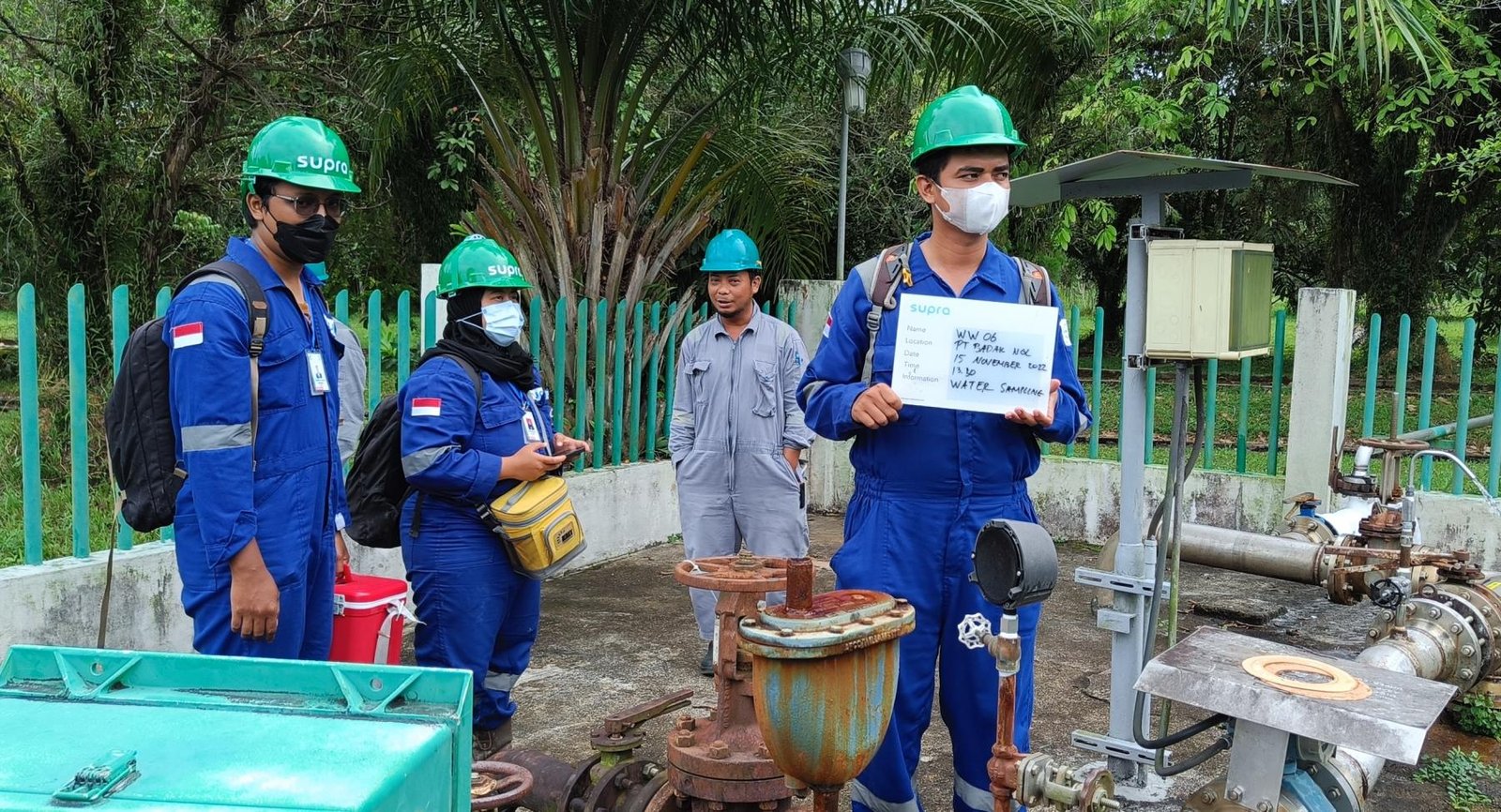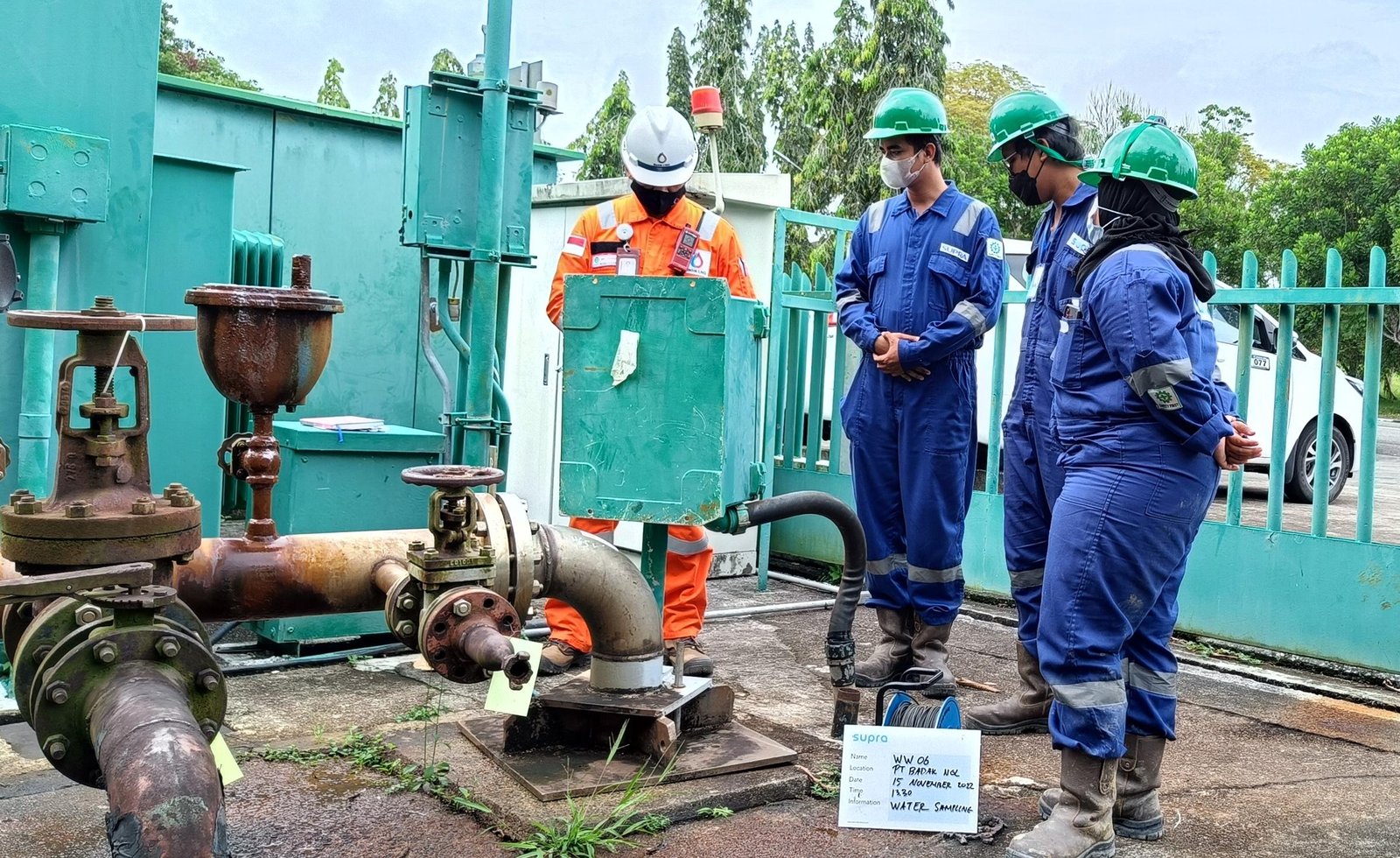
Integrated Hydrogeological Study for Verification of Groundwater Reserves of LNG Operations
Securing Sustainable Groundwater Resources for PT Badak NGL
Client: PT Badak NGL
Location: Bontang, East Kalimantan, Indonesia
Year: 2022
Executive Summary
In liquefied natural gas (LNG) operations, the integrity of supporting utilities is as critical as the production process itself. PT Badak NGL commissioned an independent verification study of its groundwater reserves to evaluate long-term reliability under current and projected extraction scenarios. SUPRA International conducted a full-spectrum hydrogeological assessment combining field mapping, geophysical surveys, and groundwater modeling.
The analysis confirmed that aquifer systems remain structurally sound, with flow directions stable and no indication of seawater intrusion. By integrating data from hydrogeological, geoelectrical, and water quality monitoring, the study provided PT Badak NGL with a technical foundation for operational assurance, regulatory compliance, and stakeholder engagement.
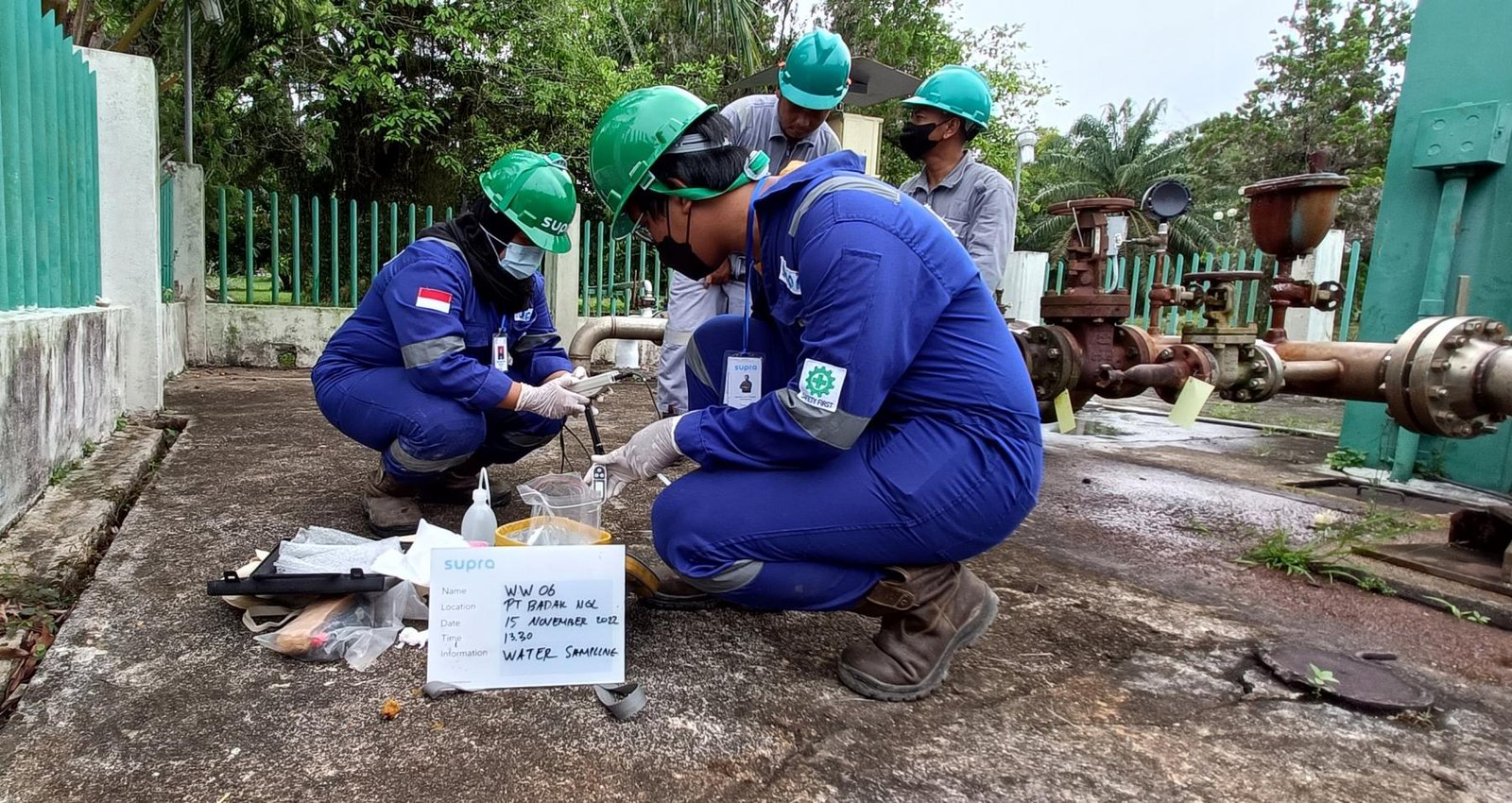
Project Context
As one of Indonesia’s largest LNG facilities, PT Badak NGL relies heavily on groundwater to sustain both industrial processes and surrounding community needs. With rising urbanization in Bontang and increasingly stringent environmental regulations, validating the resilience of groundwater systems became essential. The study was designed not only to assess the volumetric reserves but also to understand quality parameters, potential recharge capacity, and the implications of long-term pumping.
The context demanded balancing three priorities:
- Operational certainty for LNG production continuity.
- Regulatory adherence to Indonesia’s groundwater abstraction framework.
- Community trust by demonstrating that industrial abstraction does not compromise local water access.
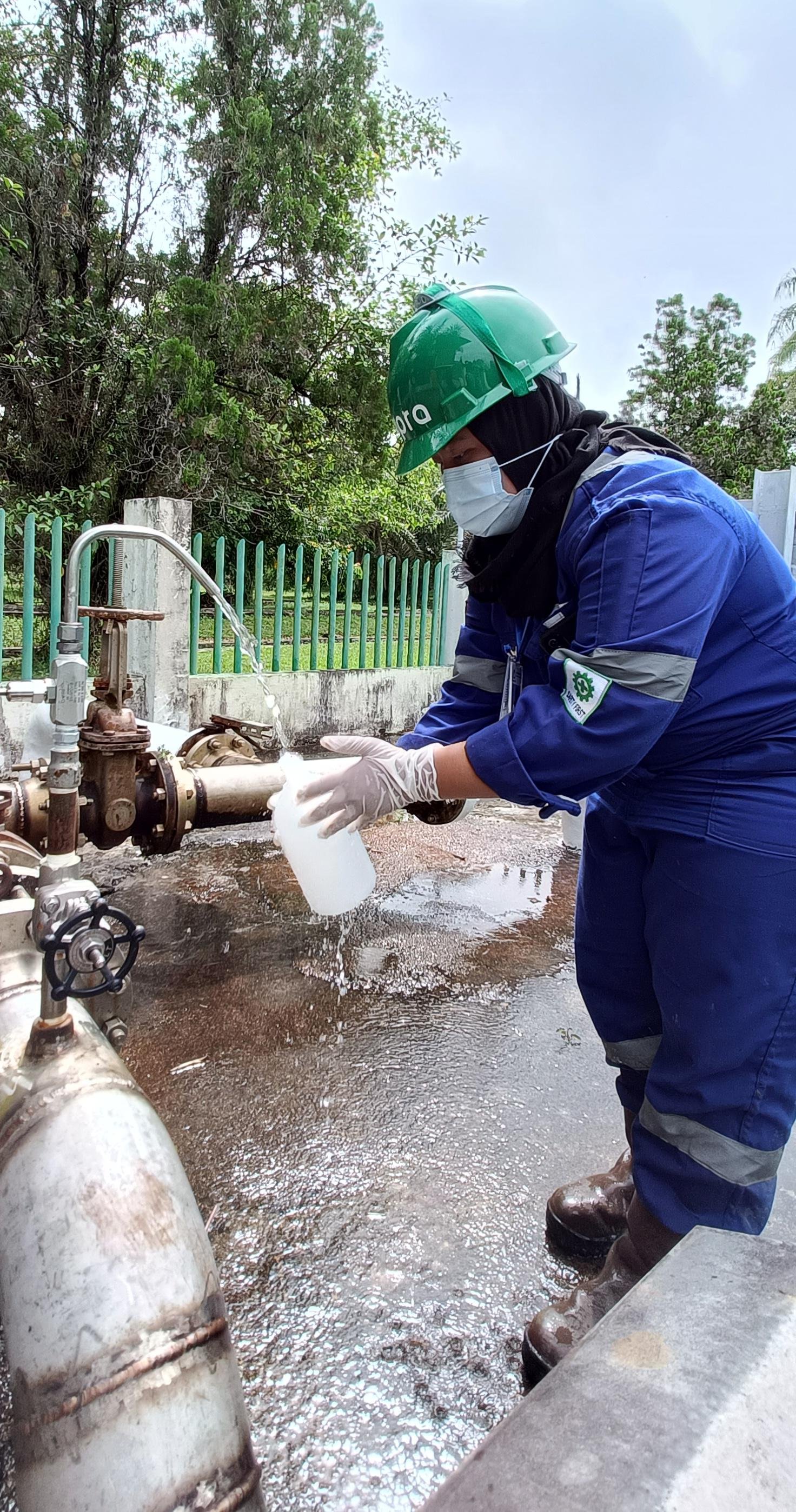
Challenges
The verification required navigating complex geological conditions. Sandstone-dominated aquifers, interbedded with claystone, created variability in porosity and permeability, complicating long-term predictions. The proximity to coastal boundaries heightened the risk of seawater intrusion, making chloride monitoring a critical metric. Moreover, community reliance on the same aquifers introduced a social dimension, necessitating transparent and defensible results.
Another challenge lay in integrating decades of historical water quality data with new field measurements. Aligning these datasets into a coherent hydrogeological model required both technical rigor and careful validation to ensure robustness of the 10-year simulation outcomes.
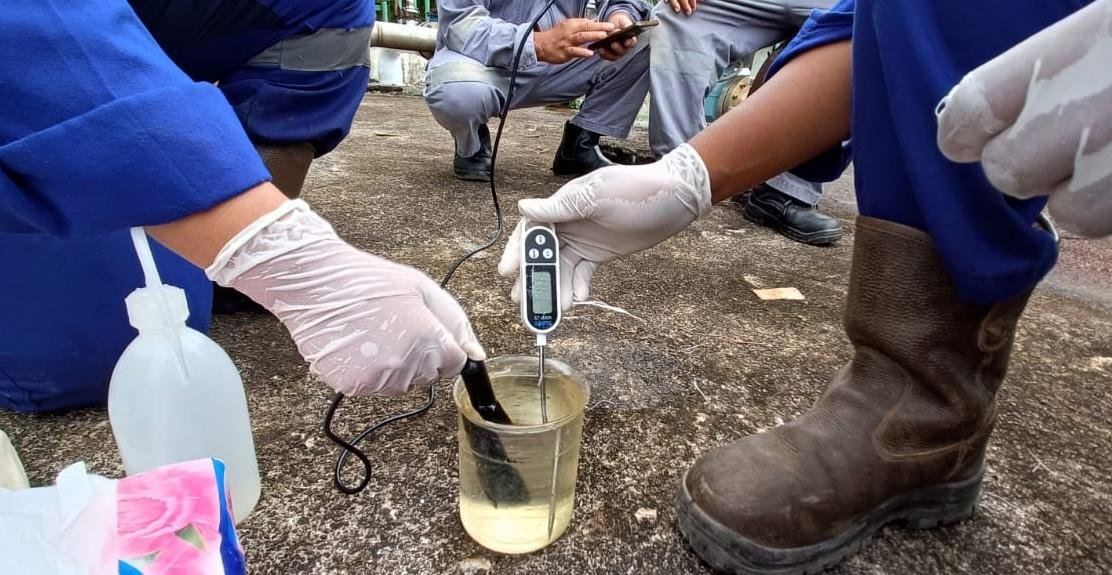
Approach
SUPRA International structured the study around three phases:
- Data Consolidation – Review of historical monitoring, lithological profiles, and hydrological records to establish baselines.
- Field Investigation – Hydrogeological mapping, geoelectrical surveys (VES method), and multi-point sampling to characterize aquifer geometry, quality, and recharge dynamics.
- Predictive Modeling – Development of a 10-year hydrogeological model under steady-state and transient conditions, simulating drawdown patterns, recharge potential, and contaminant transport.
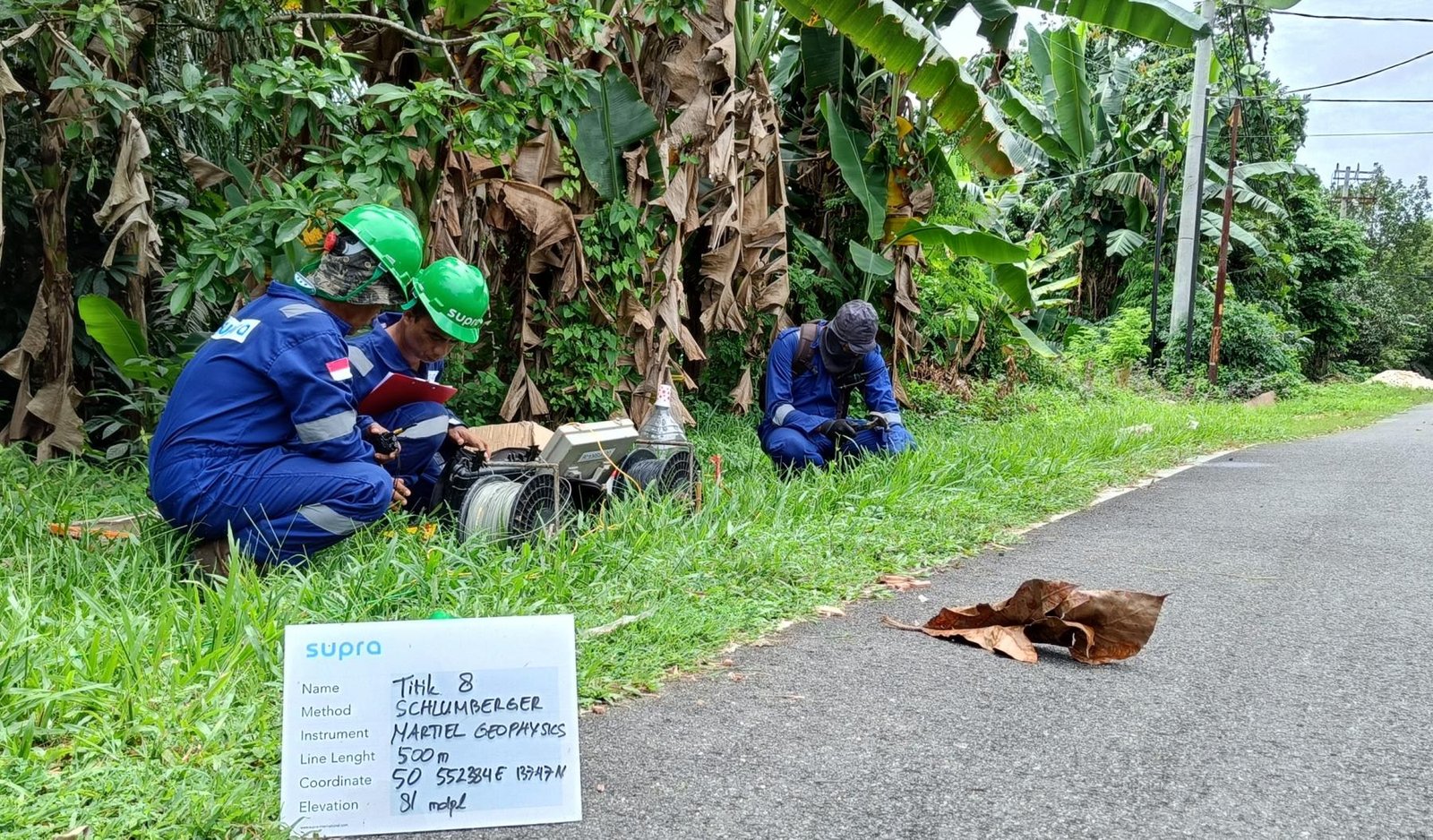
Findings
The study identified confined aquifers with stable intergranular porosity, supported by geophysical validation. Water quality testing showed consistent compliance with regulatory thresholds for key indicators such as pH and TDS. Chloride levels were minimal, confirming the absence of seawater intrusion, while elevated iron concentrations were determined to be naturally occurring due to local lithology.
The 10-year simulation projected minimal drawdown and stable flow orientation toward the southeast, aligning with regional hydrogeological expectations. Community wells showed negligible variations in quality, reinforcing the conclusion that industrial abstraction does not negatively affect domestic supply.
Impact
The outcomes of the study carried direct business relevance for PT Badak NGL:
- Operational Assurance: Confirmed groundwater sustainability safeguarded against risks of supply interruption, ensuring LNG production continuity.
- Cost Avoidance: Validating aquifer reliability reduced the need for alternative water infrastructure investments such as desalination.
- Regulatory Compliance: Provided verifiable evidence to satisfy Indonesian groundwater permitting requirements, reducing exposure to penalties or restrictions.
- Reputation and ESG: Strengthened PT Badak NGL’s environmental credentials by demonstrating stewardship of shared natural resources, reinforcing investor and community confidence.
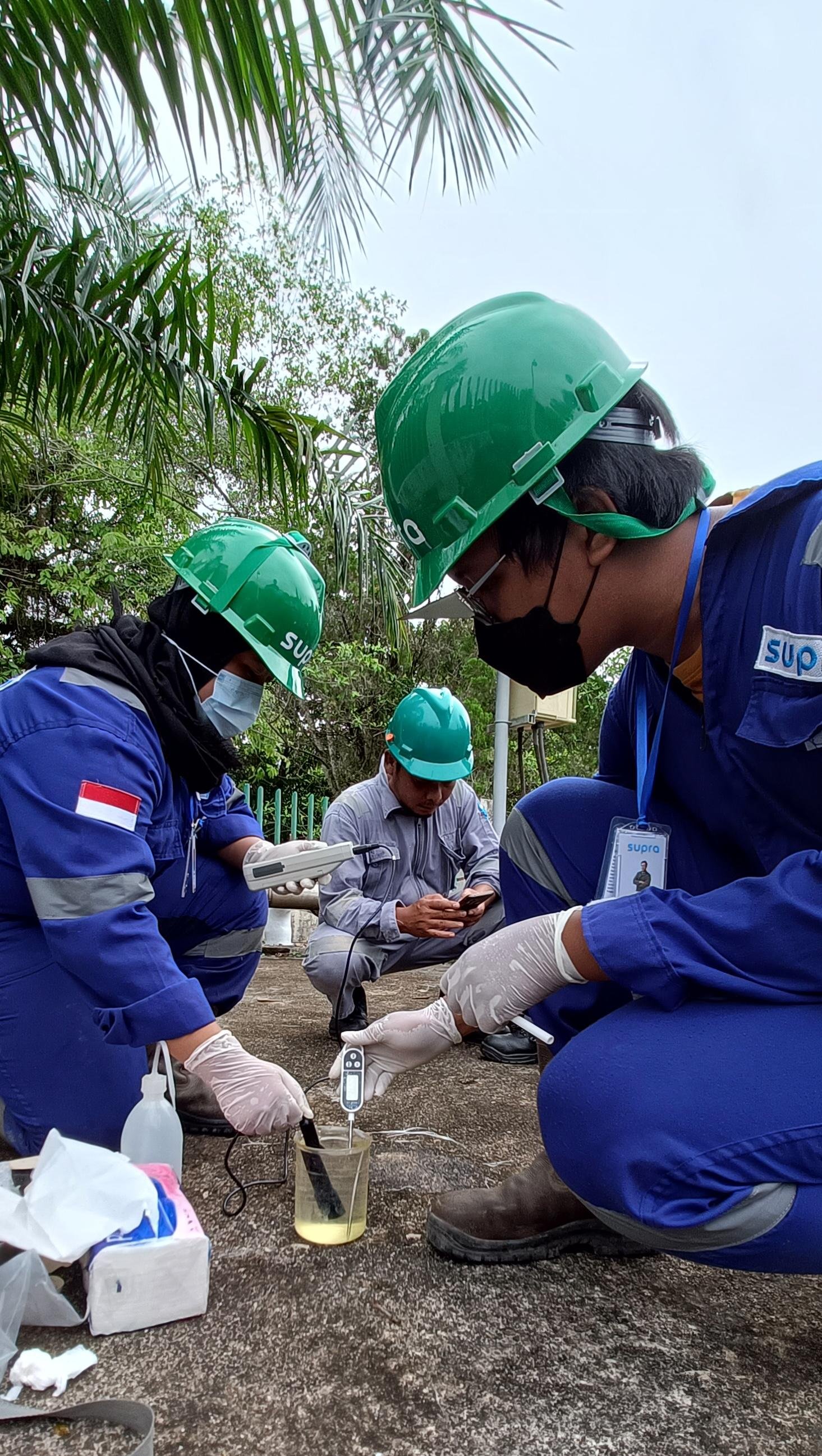
Strategic Significance
This project explain how hydrogeological science can mitigate operational risk in energy production. PT Badak NGL secured a critical utility for its operations and reinforced its long-term license to operate. The study serves as a case example of how data-driven environmental validation supports both industrial resilience and sustainable growth.
Share:
Jika Anda menghadapi tantangan dalam air, limbah, atau energi, SUPRA siap mendukung. Tim kami membantu meningkatkan keandalan, memastikan kepatuhan, meningkatkan efisiensi, dan mengendalikan biaya. Bersama, kita menentukan fase layanan lifecycle yang paling sesuai untuk kebutuhan proyek Anda.


